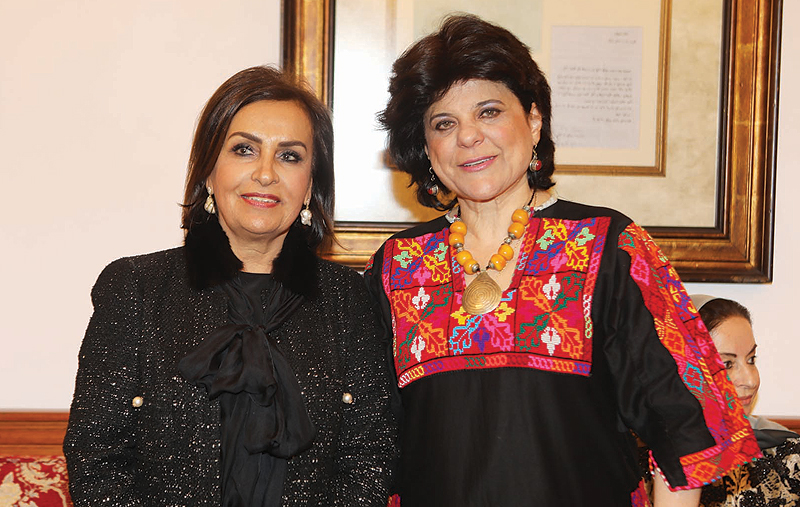Campaign succeeded in planting 2.6 million trees in different parts of Palestine
KUWAIT: The Arab Organization for the Protection of Nature in Kuwait launched the 'One Million Trees' campaign to support the resoluteness of Palestinian farmers. The event was sponsored by the Women's Cultural Social Society (WCSS), Kuwaiti Committee for Jerusalem and Kuwait Alumni Association and was held on Tuesday at Diwan Al-Mulla in Sharq.

President of the Arab Network for Food Sovereignty (ANFS) Razan Zuayter said thanked the WCSS for hosting them and allowing them to meet with other WCSS members and share with them the ANFS pioneering experience in promoting the peaceful and positive steadfastness of the Palestinian people "that constitutes for future generations."
"I was dreaming of planting one million trees in Palestine, but this has reached 2.6 million trees in different parts of Palestine. We grow as the Israelis uproot," she said. Zuayter added that they are carrying out a campaign in Palestine to re-cultivate olive trees under the slogan of green resistance. "They are cutting down one tree and we are planting 10 trees," she said, pointing out that they launched this campaign in 2000.
She added that the Israeli occupation was uprooting a tree every minute, as they have uprooted three million olive trees since 2000 till today, including a large number of perennial trees, indicating that their campaign has succeeded in the cultivation of 2.6 million trees and they aspire to double this number.
Zuayter noted that volunteers and members of the movement are increasing and are currently working to support Palestinian farmers so that they are able to maintain their land and agriculture, explaining that the way to get support for Palestinian farmers is through agricultural organizations and non-profit associations in Palestine. "We trust and buy seedlings from Palestinian plantations," she added.
"There are priorities in selecting the beneficiaries, like prisoners or widows, in cooperation with our partners in Palestine, where we send fact-finding missions to see the results of what we do," Zuayter said, adding "around 24,000 farmers have benefited from this campaign until now and about 240 people receive an income from these projects. Those people depend on the support of Arabs who are interested in the Palestinian cause and have not taken any foreign funding for this campaign."
On the biggest obstacles to their work, Zuayter said there is no unified strategy for aid workers for Palestine in all fields, in addition to financing, since most foreign funding that comes to Palestine is conditional and is more harmful than beneficial. "The division between the Palestinians has had a great impact on the mechanism of our work, and on the aspirations of the Palestinian people. The division is frightening, but as a Palestinians, we do not despair," she said.
Lulwa Al-Mulla, President of the Women's Cultural Social Society and a member of the Kuwaiti Committee for Jerusalem, recalled an incident in which she said that they provided shelter to a Palestinian militant and her husband. She further stressed that steadfastness is not only shown through use of weapons, but by supporting food, nature, and agriculture in the Palestinian territories, and also by helping farmers sell their crops and creating decent work for Palestinian farmers.
By Faten Omar

